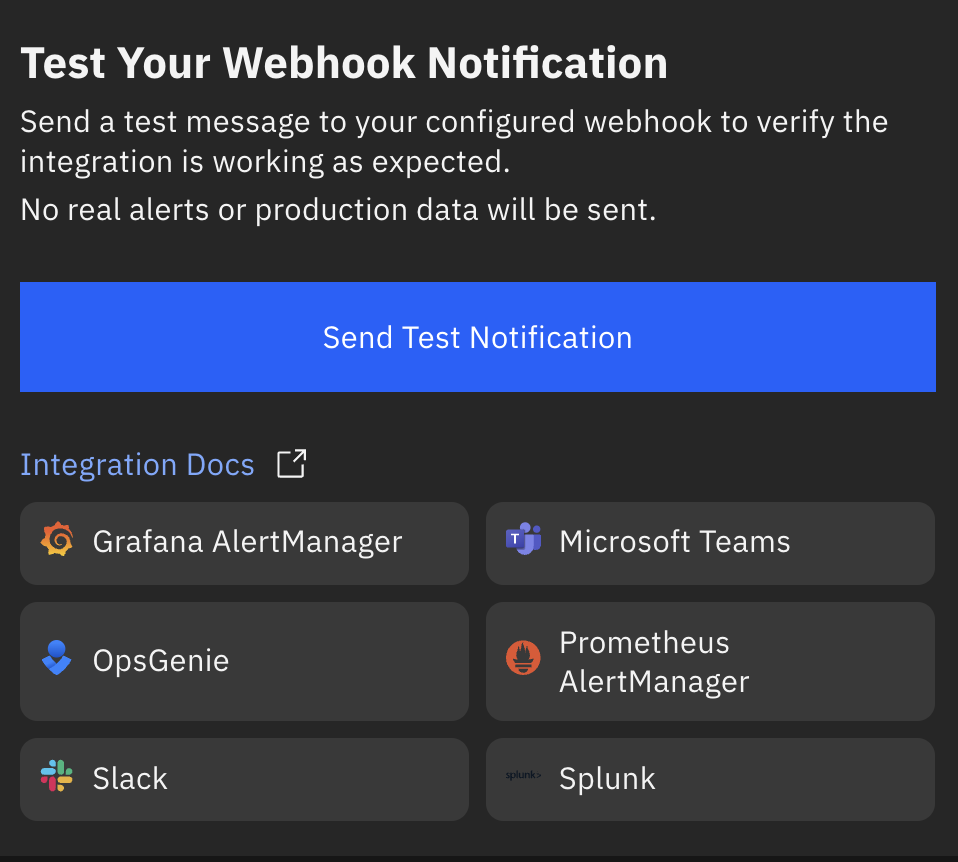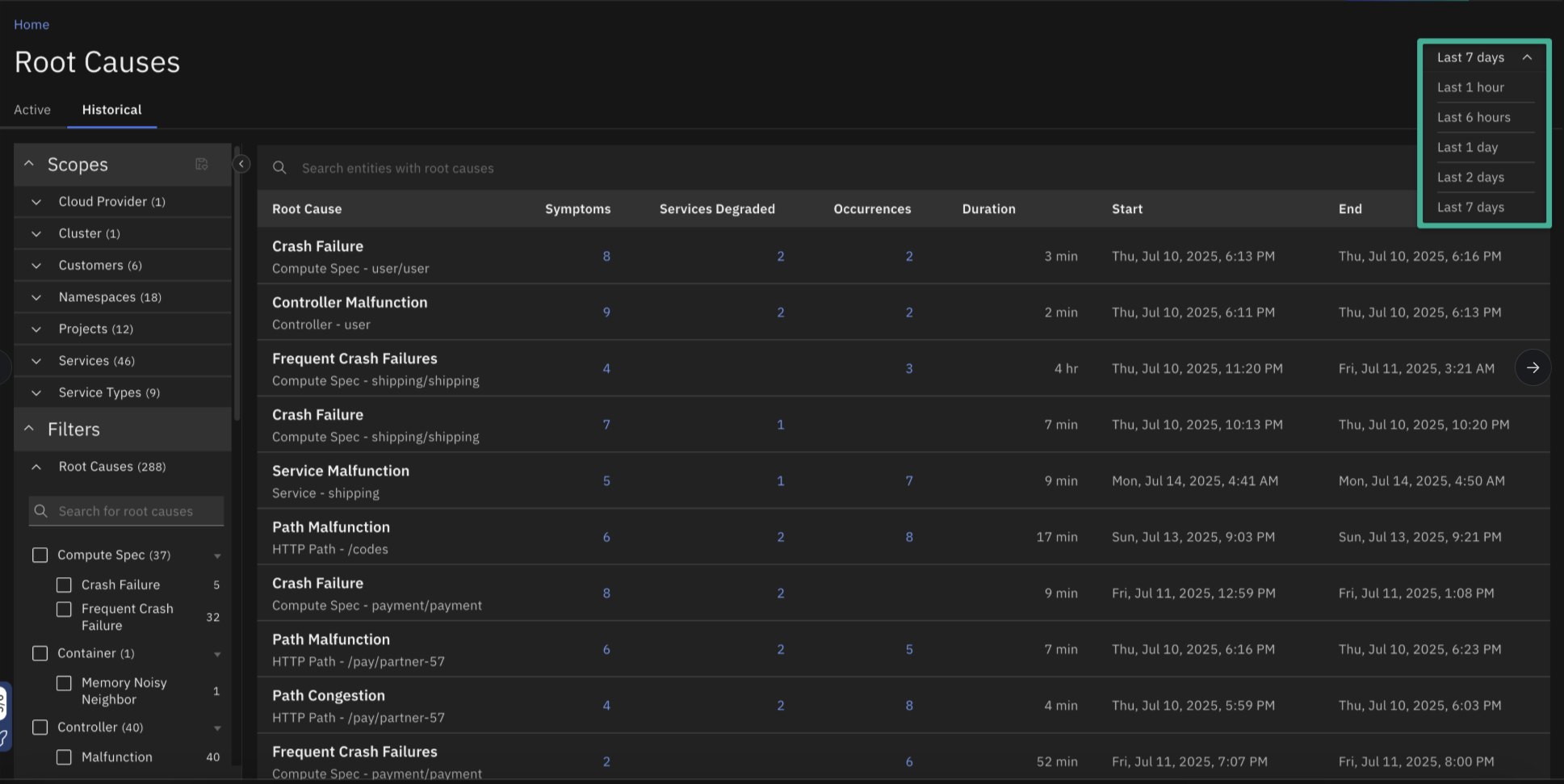v1.0.84
July 21, 2025
v1.0.84Root Cause Impact—Now in Architectural Context
Quickly see which services are impacted by a root cause. Causely now provides a direct view of the services being affected, along with a link to the live service-to-service topology graph.
This helps teams align on the scope of the issue, prioritize response, and collaborate on remediation—all from a shared system view.
Easier Alerting Integration Setup and Testing
Streamline your incident response workflows. We now support in-product testing for alerting integrations (like Slack, PagerDuty, and more), so you can confirm everything works before going live.
Causely supports multiple workflow destinations—ensuring your on-call engineers get timely, actionable context in the tools they already use.

Fine-Tuned Symptom Activation—Because Every Second Counts
Control how fast (or slow) Causely infers a root cause. You can now customize the activation and deactivation delays for symptoms on a per-service basis using Kubernetes labels, Nomad service tags, or Consul service metadata.
By default, a condition must persist for 10 minutes before a symptom becomes active—but now you can tighten that window for mission-critical services or extend it for lower-priority ones. See our symptom delay configuration guide for detailed setup instructions and best practices.
This helps you tune responsiveness without sacrificing signal quality.
Understand Past Incidents Faster
Explore historical root causes with more precision. You can now sort by services degraded count, start time, or end time to quickly find the root causes that matter most from previous days or weeks.
Whether you're doing a postmortem or scanning for recurring issues, it's now much easier to answer: "What was going on at that time?"

Did you know?
Causely uses eBPF technology to automatically instrument your applications with zero code changes and minimal overhead. Powered by Grafana Beyla, our eBPF-based instrumentation extracts rich telemetry data from services written in Go, Java, .NET, NodeJS, Python, Ruby, Rust, and more—without requiring language-specific agents or application modifications.
This zero-effort integration provides actionable insights into service interactions, latencies, and system performance, and it's enabled by default in all Causely deployments.
Learn more about how Causely leverages eBPF for automatic instrumentation.